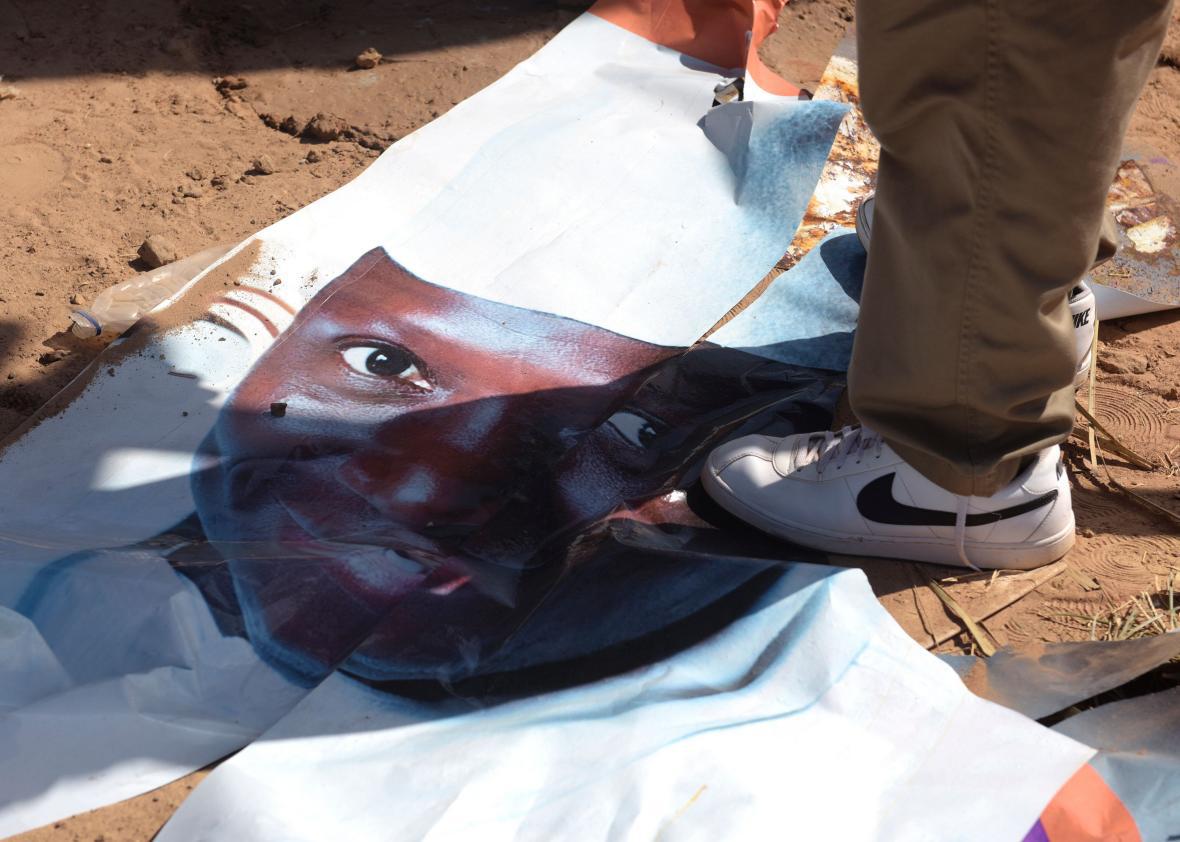Senegalese troops entered Gambia on Thursday to force longtime President Yahya Jammeh to step down. Jammeh was defeated in elections in December but has questioned the results and resisted calls from regional governments to step down. His opponent, Adama Barrow, was sworn in Thursday at the Gambian Embassy in Senegal, so at the moment, the country has two presidents. Even Google is confused:
Jammeh, who took power in a military coup in 1994, had initially suggested he would step down after the election, prompting gullible suckers in the international media to portray it as a rare bright spot in a rough year for democratic norms. But Gambians, reportedly on edge since the vote, knew better. Jammeh is one of the world’s most brutal and eccentric dictators, known for imprisoning and torturing opponents, peddling homemade AIDS cures, threatening the lives of LGBTQ people, and promising to rule for a “billion years.” This is not the sort of person who gives up power once he has it. Sure enough, Jammeh quickly changed his mind and demanded new elections.
This is a very dangerous situation, but sadly not an unfamiliar one in West Africa. Post-election violence in the Ivory Coast after President Laurent Gbagbo refused to step down in 2010 resulted in 3,000 deaths and nearly half a million people displaced. Nigeria only saw its first peaceful, democratic transfer of power in 2015. Even Senegal, considered a beacon of democracy and stability in the region, nearly saw all of its progress derailed in 2012 when violent protests broke out after longtime President Abdoulaye Wade had the constitution changed to allow himself to run for a third term.
Leaders, generally speaking, don’t give up power unless they absolutely have to. When democratic norms are weak, they’ll find a way to exploit that for their own gain. Jammeh, though, seems to have miscalculated. Gambia is a small, poor country, whose landmass is entirely surrounded by Senegal. If the neighbors want him gone, there’s probably not much he can do about it other than causing a violent crisis that could weaken his country’s institutions for years to come.
Usually, that’s not how the power dynamics work. Bashar al-Assad clings to power today, and will likely continue to, even as his country has disintegrated around his surprisingly durable regime. Vladimir Putin set up Russian term limit laws to allow him to stay in power until at 2024, longer than any Soviet leader except Joseph Stalin. Peaceful transfers of power are rare enough in Africa that a Sudanese billionaire has set up a generous annual prize to reward leaders who step down voluntarily: More often than not, he can’t find anyone to give it to.
Back in October, shortly after Donald Trump refused to affirm on a debate stage that he would accept the results of the November election, Mark Leon Goldberg wrote a post reflecting on a trip through Ethiopia in 2008, amid the jubilation caused throughout Africa by Barack Obama’s election. He recalled a local activist telling him, “Yes, Obama is great. But what we need are more John McCains — people who lose a close election and concede without starting a war.”
I’d only add that sitting leaders who are willing to give up power once they’ve acquired it are even more valuable, and shouldn’t be taken for granted.
